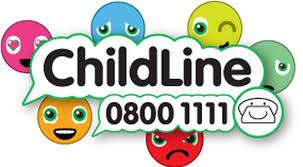-
Home
-
OUR CURRICULUM
- Special Educational Needs & Disability School Offer
- Curriculum Outline and Rationale
- Curriculum Leaders
- Statutory Assessments
- Core Subjects >
- Foundation Subjects >
- Online Safety >
- Mrs Fitchett's Art Blog
- Mr Smith's Sporting Information
- British Values
- SMSC at Park Street
- Personal Learning And Thinking Skills
-
Team Groups
-
Parents
- Kids Zone
- Statutory Information
|
In our reading work, pupils have read a wide selection of non-fiction including biographies, information texts linked to natural disasters, historical sources, information texts and web pages linking to our RE topic on Buddhism. We have been equally enthralled by the fiction texts we have read including: a range of modern and historical narratives by authors such as George Layton, Emma Carroll and Derek Landy. We explored Lewis Carroll’s Jabberwocky poem and read, learnt and performed a selection of Christmas poetry – which we recorded for our Christmas performance. We continue to work on our VIPER skills but have had a more detailed focus on inference reading comprehension questions around characters and their emotions and also questions requiring more detailed comparison description.
0 Comments
Team LF have read Dracula, written by Bram Stoker, during our reading lessons this term. We have focussed on the vocabulary used within the text in order to support our understanding of the novel. The story also lent itself well to other VIPERS elements, allowing us to work on retrieval, prediction and inference. We have used stem sentence responses to support with the structure of our answers and become more familiar with the point, evidence, point evidence (PEPE) technique. We also briefly touched on summarising and this is something we will be continuing with at other points in the year. As part of our GASP approach to writing, we have also engaged in the reading on non-fiction texts (such as newspapers) to develop our understanding of different text types and support us with the analysis of features.
Team DB have continued to read Dracula throughout the second part of the Autumn term, written by Bram Stoker. We have focussed on the vocabulary used within the text in order to support our understanding of the novel. The story also lent itself well to other VIPERS elements, allowing us to work on our retrieval skills as well as looking how to predict what may happen next, using our inference skills to help us make a sensible guess and using our knowledge about what we have read. We are also beginning to use stem sentence responses when answering questions about the text and this is something that Team DB will be continuing to focus upon in the Spring term. We also briefly touched on summarising and this is something we will be continuing with at other points in the year. As part of our GASP approach to writing, we have also engaged in the reading of non-fictional texts (such as newspapers) as well as diary extracts to help develop our understanding of different text types and support us with the analysis of the feature of each genre.
In reading, Team JD have worked really hard to analyse fiction texts. We have linked our reading to our topic of Wombwell and Whitby and used the fictional text of Bram Stoker’s Dracula to support our understanding of the coastal town of Whitby. Vocabulary, retrieval and prediction have been our key VIPERS focus throughout this half term. As a class, we have spent time every week analysing Dracula and other similar readings. Using images and actions, we have developed an understanding of unfamiliar words, allowing children to explain the meaning of new vocabulary and then being able to use these in our writing. We have then built upon our fluency skills through echo reading sessions led by Mr Davison. Team JD have improved their fluency and confidence in reading their work aloud to an audience. We have continued to work on comprehension questions in which the children have developed a clear procedure for scanning and locating information, reading the question and ultimately creating a successful response.
In reading, Team CB have continued to explore non-fiction texts linked to our topic of Mountains and Rivers. We have focussed upon the technical, subject specific language to develop our understanding of key terms and concepts across the curriculum. In addition to non fiction texts we also studied the poem A River’s journey by Angela Yardy which combined the true account of a rivers journey with features of personification throughout. These texts were fantastic for VIPERS based learning linked to vocabulary. We have also started to explore inference this half term. This was introduced through image stimulus to begin with to support the children in recognising the need for their own thoughts plus evidence from the stimulus in order to successfully inference. The class then worked hard to apply their views into a written response with sentence stems generated from the questions posed.
In reading, Team AC's year 3s have been working closely with Team CB , where they have continued to explore non-fiction texts linked to our topic of Mountains and Rivers. We have focussed upon the technical, subject specific language to develop our understanding of key terms and concepts across the curriculum. In addition to non fiction texts we also studied the poem A River’s journey by Angela Yardy which combined the true account of a rivers journey with features of personification throughout. These texts were fantastic for VIPERS based learning linked to vocabulary. We have also started to explore inference this half term. This was introduced through image stimulus to begin with to support the children in recognising the need for their own thoughts plus evidence from the stimulus in order to successfully inference. The class then worked hard to apply their views into a written response with sentence stems generated from the questions posed. Our year 2s have continued to develop their phonics knowledge through the RWI programme of study. They have worked hard to secure their knowledge of the different sounds which has allowed them to read with greater accuracy and become much more fluent with their reading.
This half term Team JF have been incredibly busy working hard on their reading skills. The class have been working hard to follow the Read Write Inc programme to support children to become confident and independent readers and writers. We have worked hard to learn different phonemes, digraphs and split digraphs followed by Fred Talk and reading words with the support of Fred the frog.
This half term Team CH have been incredibly busy working hard on their reading skills. The class have been working hard to follow the Read Write Inc programme to support children to become confident and independent readers and writers. We have worked hard to learn different phonemes, digraphs and split digraphs followed by Fred Talk and reading words with the support of Fred the frog.
In reading this half term, Team EO have continued to have a heavy focus on phonics - learning to read the letters by saying the correct sound. Children have spent time consolidating previously taught sounds and learning new sounds in their groups. We have spent time learning to read green word cards by doing ‘Fred Talk, Read the Word’, ‘Fred in Your Head’ and then reading the words speedily in our phonics groups. Some of us have also been trying to read tricky red words and high frequency words! Our core book this half term has been ‘Zog’, which we have enjoyed listening to over and over again. This has enabled us to join in with repeated phrases throughout the book. We have also picked out vocabulary that was unfamiliar to us and we have discussed what these words mean.
Each week Team CW focuses on a different story. Our stories this half term have been Meg and Mog, Rama and Sita, Day Monkey Night Monkey, Noah’s Ark and the Nativity Story. We have based our learning activities in provision on these stories to strengthen our knowledge of them and their features. We have used our small world and role play areas to retell them using story language. We have been learning new vocabulary from each story and have been able to use this in our play. Our familiar book this half term is “Peace at Last” by Jill Murphy. We love this story and like to sit in our reading area with our friends and look at the book and retell the story. We can join in with familiar words and phrases and talk about what is happening and why.
|
Subject LeadMiss C McGinnes and Miss C Baxter Archives
April 2024
Categories |
Location |
Contact UsMailing address:
Wombwell Park Street Primary School, Park Street, Barnsley, S73 0HS Telephone: 01226 752029 Email: parkstreet@ecmtrust.co.uk General Enquiries: Our Admin Team will be happy to assist you with any enquiries and direct you to the relevant staff as necessary. Our Leadership team will always be happy to help, as will our Parent Support Advisor Mrs Carol Mason. If you require a paper copy of any of the information found on our website we will be happy to provide you with this free of charge upon request, Please contact a member of our office staff who will be more than willing to help. ECM Trust: http://www.ecmtrust.org/index.html |
-
Home
-
OUR CURRICULUM
- Special Educational Needs & Disability School Offer
- Curriculum Outline and Rationale
- Curriculum Leaders
- Statutory Assessments
- Core Subjects >
- Foundation Subjects >
- Online Safety >
- Mrs Fitchett's Art Blog
- Mr Smith's Sporting Information
- British Values
- SMSC at Park Street
- Personal Learning And Thinking Skills
-
Team Groups
-
Parents
- Kids Zone
- Statutory Information

 RSS Feed
RSS Feed

